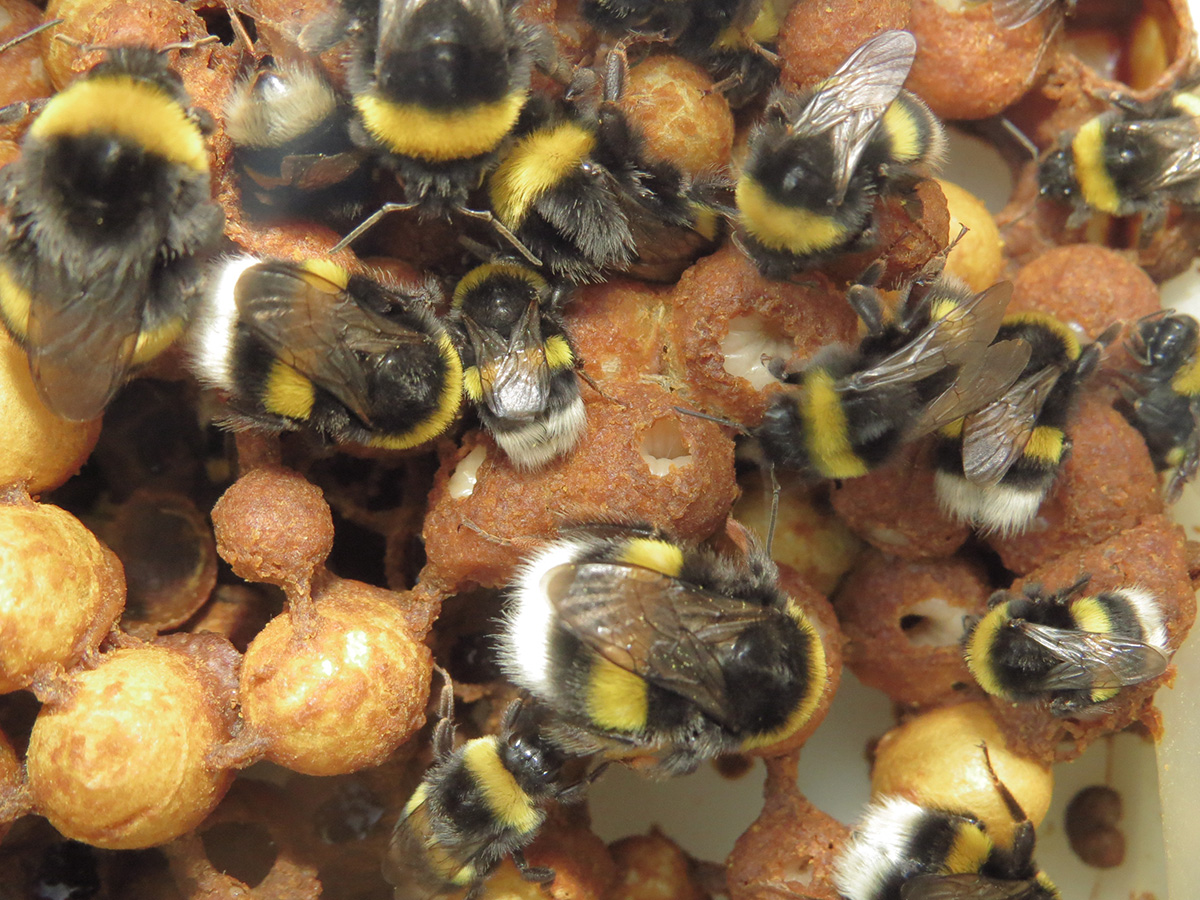Exposure to insecticide formulation alters bumblebee foraging behaviour, but not peripheral perception
Due to the widespread use of insecticides, researchers have been increasingly concerned about their environmental and health effects. The Plant Protection Institute of the HUN-REN Centre for Agricultural Research (HUN-REN CAR NÖVI) has demonstrated that insecticide-treated bumblebees start foraging later and are less likely to find the tested floral blend source than their control counterparts. This research, published in the prestigious journal Scientific Reports, shows that even approved and widely used insecticides can affect beneficial insect species.
Although insecticides play an important role in the fight against weeds, pests, and pathogens, there has been increasing concern in recent years about the environmental and health effects of their use. When these agrochemicals enter the environment, they can have negative effects on human health, biodiversity and various ecosystem services.
Previous studies have shown that exposure to acetamiprid, a neonicotinoid insecticide also approved in the European Union, can have adverse sub-lethal effects on many organisms, including pollinating insects and natural predators of agricultural pests. However, we do not yet have sufficient information on the extent and severity of these effects. In their study, researchers from the Plant Protection Institute, HUN-REN CAR, investigated the effects of the acetamiprid-containing Mospilan formulation on the behaviour and antennal detection of scents in buff-tailed bumblebees (Bombus terrestris). They found that the applied pesticide treatment did not affect the detection of the synthetic flower blend by the bumblebees' antennae, but significantly altered the foraging behaviour of the tested animals. More of the exposed bumblebees started foraging later and were less likely to find the floral blend source than their control counterparts.
The results suggest that exposure to the acetamiprid-containing Mospilan can interfere with the foraging activity and orientation of bumblebees. The researchers hypothesize that these sub-lethal effects may be exerted through neurophysiological and endocrine mechanisms. Future research should explore how these effects may affect the population dynamics of pollinators and their ecosystem services.
This research, published in the prestigious journal Scientific Reports, shows that even approved and widely used insecticides can affect beneficial insect species. Therefore, it is crucial to conduct further studies in order to better understand the long-term effects of these agrochemicals and develop sustainable agricultural practices.


